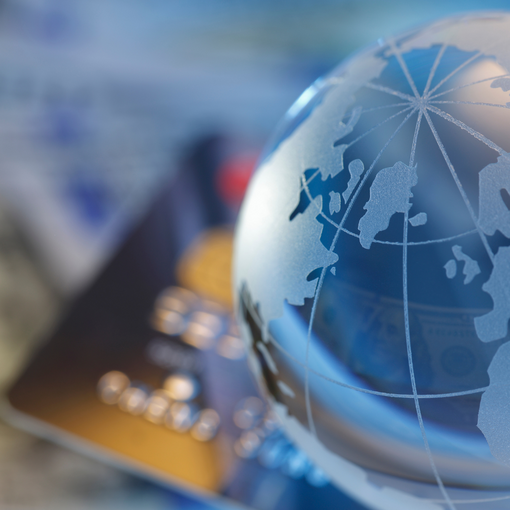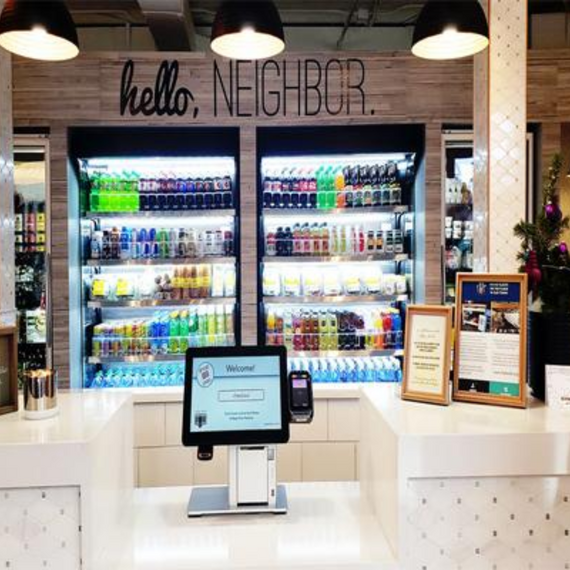
- Five minutes read
Fintech for good: creating a financially inclusive future
Beyond product innovation, Fintech companies are collaborating with community advocates, non-profits, and other institutions to impart positive social change and build a more transparent, accessible, and inclusive financial system.
The philosophy around ‘Fintech for Good’ is rooted in helping individuals by expanding access to inclusive financial services and empowering businesses, regardless of size, to navigate an increasingly challenging economic environment. At its core, this global movement has spurred a focus on deploying long-term, sustainable solutions to ensure that more of the world’s population has access to reasonably priced services that help power their day.
Financial services firms are investing more time, effort, and money into building products that help close socio-economic gaps, particularly as communities recover from fiscal challenges driven by external factors, such as the COVID-19 pandemic and rising living costs. Here is how the fintech industry is serving as a force for good and accelerating a more inclusive path forward through technological innovation.
Meeting people where they are
Fintechs are uniquely positioned ‘to do business the right way’ by providing accessible payment solutions that support and drive financial inclusion. In April 2022, we commissioned a survey of 11,000 global consumers to find out how their payment preferences have been impacted by the rising cost of living, attitudes towards security and convenience in online payments, and the role of cash in their day-to-day purchasing behavior. Overall, 44% of respondents confirmed that the cost-of-living crisis has forced a change in their online payment habits, with 40% shifting toward payment methods that allow them to track spending more accurately and 21% avoiding buying on credit.
Making it easier for more people to access digital services and pay online is an opportunity for financial services firms to broaden their addressable market. One of the ways the fintech space has made payments more accessible is by finding new ways to evolve cash. Through the proliferation of alternative payment methods (APMs), such as eCash (digitalized cash), these methods can empower unbanked and underbanked communities to participate in eCommerce and digital transactions overall.
Cash remains the most accessible form of payment, especially to the unbanked and underbanked, and eCash products, like Paysafecash and viacash solutions, support customers who want or need to transact online using cash. This payment solution not only works for eCommerce, but also enables cash-reliant consumers to complete online bill, loan, and rental payments.
Empowering small businesses
As costs for goods and services continue to rise, combined with the impact of supply-chain shortages, merchants are in need of solutions to help mitigate inflationary pressures and safeguard their businesses. To deepen resiliency for small-to-medium sized businesses (SMBs), fintechs are making it possible for businesses to better serve customers through multifunctional, digital solutions that offer personalized support and real-time data analytics, among other benefits.
In direct response, the industry is working closely with businesses to understand their needs amid growing economic uncertainty, both in terms of customer retention and supporting future growth, and are utilizing this information to create consumer-centric solutions. This approach towards enhanced partnership has empowered merchants to ultimately make their checkout experience more convenient and seamless for customers by leveraging innovations in payments technology and adopting a broad range of payments methods. By giving customers a greater choice as to how they make payments, businesses can enable customers to select their preference and not compromise, which may be particularly relevant as more consumers embrace payment methods that allow them to track spending more accurately.
Additionally, this latest surge of digital transformation has seen more SMBs bring their businesses online for the first time, enabling these merchants to implement new sales channels. They’re also embracing a variety of payment methods for online storefronts and processing solutions to facilitate broader payment acceptance, creating new opportunities to offer an enhanced checkout experience for all customers, regardless of payment preference.
Making online charitable giving easy and convenient
The non-profit sector has been one of the hardest hit industries following the onset of the pandemic. Even before lockdown mandates and restrictions to in-person activities forced organizations to temporarily close their doors and quickly adapt to a new way of reaching donors, with non-profits facing funding constraints pre-COIVD. And with an increasing number of people experiencing economic hardships, the demand for voluntary services — from small business support to education, food banks, and mental health support – has only amplified.
When traditional fundraising channels, such as in-person collections and sending physical cash or check payments by mail, became unavailable due to restrictions on face-to-face interactions, it presented an enormous challenge for non-profits to raise enough money to continue their important work. In response, the fintech industry looked to modernizing how these organizations collect donations by powering digital channels for fundraising and diversifying payment acceptance.
Research we commissioned back in 2021 showed that 56% of respondents say they’d only shop somewhere that would accept their preferred payment method. The same can reasonably be assumed to be true for paying for charitable donations. With consumer demand veering increasingly towards adoption of digital solutions, online giving provides an opportunity for non-profits to reach a wider audience without spending large amounts of their limited funds on in-person events or digital and traditional media campaigns. Additionally, these innovations have made it possible for non-profits to amplify their peer-to-peer fundraising strategies, with donation acceptance now available through social media platforms.
Investing in a sustainable future
Not only has the fintech sector been instrumental in driving financial inclusion, but the industry also remains committed to supporting the wider environmental, social, and corporate governance (ESG) agenda. Businesses have shown their ability to take a position of global leadership, create plans, processes, and policies that positively shape the future to come.
In the early days of the pandemic, we saw companies demonstrate ingenuity and resilience throughout the public health crisis to adapt and thrive. As we look to cultivate a sustainable future for everyone, harnessing the spirit and belief that we’ve generated throughout the pandemic to adopt sustainable, environmental policies could be the catalyst to achieving our global goals and implementing lasting change.
To find out about boosting charitable giving by implementing a cash-based online donation solution, please also read our Paysafecash blog.




